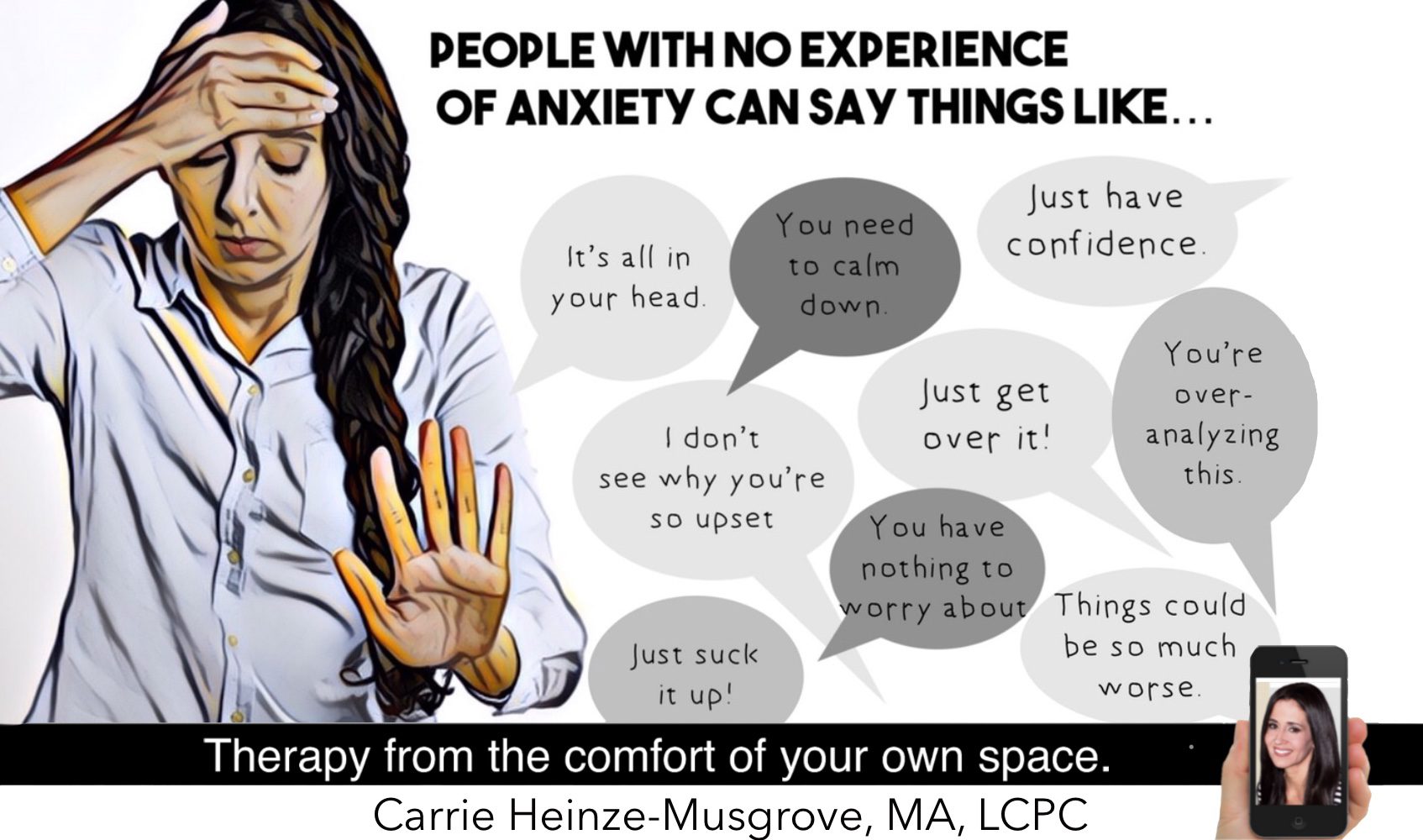Fear of losing control. Hyperventilation. Numbness. Fear of dying. Excessive worry. Pounding heart. Fear of going crazy. Inability to catch your breath. Fear of what others think of you. Feeling overwhelmed. Feeling trapped. Fear of being alone. Racing heart. Heart palpitations. Trembling. Difficulty breathing. Numbness. Nausea. Ringing in the ears. Choking sensations. Feelings of unreality. Dizziness. Feeling disoriented. Inability to speak or concentrate. Arguments in your head.
What am I describing?
If I were to tell you that someone just broke into your home, held you hostage, and threatened your life, these symptoms would make complete sense. Feelings of anxiety often serve as an “alarm system,” alerting you to danger. Many of these symptoms would ensure your survival by tapping into your fight or flight instinct.
Now, imagine for a moment feeling this very same terror while driving to work. Or after a fight with your spouse. Or at the grocery store. Or sitting quietly in a restaurant. What if there was no clear reason for these disturbing feelings?
Anxiety and panic have been said to be among the most intensely frightening, upsetting, and uncomfortable experiences of a person’s life. Although the thoughts and feelings of anxiety and panic are all too real, the brain is being tricked into thinking that you are somehow in danger — when actually you are not. Unrelenting doubts and fears can be paralyzing. They can deplete your emotional energy, send your anxiety levels soaring and interfere with your daily life.
Almost everyone deals with some degree of nervousness or anxiety in their life. Nervousness is a healthy response to an uncomfortable or new situation, such as a job interview, a speech to a group of people or an important conversation with a loved one. This is vastly different than what those with an anxiety disorder experience.
Even friends and family with the best intentions can make you feel very misunderstood and alone. This is especially true when it’s being compared to rational and sensible nervousness, uncomfortableness or uneasiness.
Struggling with these feelings may mean it is time to speak to a therapist. Therapy can help you learn how to change ingrained thought patterns and behaviors and also explore different relaxation techniques to quiet and relax the mind. Fortunately, the symptoms of anxiety can be treated. You just have to take the first step. www.carrienet.com/contact.
A self-quiz and more information about anxiety is available on my webpage.
Carrie






